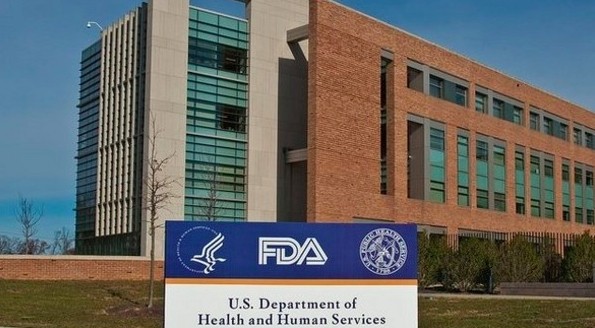Critic says FDA’s slow enforcement makes ‘DSHEA 2.0’ a side issue

“If we are not going to enforce the law it really doesn’t matter how we revise it,” Dr Cohen said at a recent botanicals conference.
Dr Cohen made his remarks as part of the International Conference on the Science of Botanicals that wrapped up Thursday, April 11. The conference was put on the National Center for Natural Products Research, held at the University of Mississippi in Oxford. This was the conference’s 19th year.
Cohen’s talk focused on how FDA goes about enforcing the provisions of the Dietary Supplement Health and Education Act, which was written into law in 1994. The conference had an overarching theme of looking at the 25-history of the regulation, and entertaining ideas about how it might be updated.
Bad actors continue to operate too freely
Dr Cohen’s main thesis is that FDA is slow off the mark to bring transgressors to justice. Problematical ingredients are dealt with more rapidly by health authorities in other countries, with FDA bringing up the tail, he said.
Dr Cohen sought to dispel the notion that has built up via his many publications over the years that he is anti supplements in general.
“I recommend supplements to my patients every day. It’s a routine thing. I do promote supplements,” he told the audience.
While much of the industry is composed of ethical companies, Cohen said the activities of some bad actors is a consistent problem, one which doesn’t put FDA into the best light.
“This is not an attempt to take a shady part of the industry and make the rest of the industry look less ethical,” Dr Cohen said.
Dr Cohen said an analysis of emergency room visits attributable to supplements generates a clear picture of where the problems in the industry lie.
“The data leads us directly to these weight loss and sports supplements. The majority of patients don’t share with their doctors what they’re taking and two-thirds of doctors don’t ask about supplements. We’re talking about weight loss, energy, body building and sexual enhancement type of products. These are high risk categories. What is FDA doing about them?” Dr Cohen said.
These categories of products tend to have the greatest risk of including either an outright drug ingredient or a previously unknown one, he said. One key failing in Dr Cohen’s view in controlling the appearance of these ingredients in the market is the lack of significant enforcement around the New Dietary Ingredient Notification provision in DSHEA.
“While the number of products has greatly expanded the number of adequately submitted NDIs has been minimal. We can surmise that there are hundreds, maybe more than 1,000, new ingredients on the market, but only a small number have gone through the NDI process,” he said.
DMAA, BMPEA cases demonstrate lethargic enforcement
Cohen said the history of enforcement on the issue of DMAA is a case in point. This stimulant ingredient, which claimed a botanical source as part of a geranium but which was synthetically manufactured, had for several years raised health alarms and was even linked to two deaths while still being sold on the open market.
“That was the setting before the first FDA warning letters finally came out in 2012,” Cohen said.
The ingredient has been removed from products in the United States, but it still available for sale elsewhere. A search on Alibaba shows more than 1,000 sites purporting to offer DMAA for sale.
Cohen said a look back at the cases of the liver injuries in Hawaii attributable to OxyElite Pro and its aegeline ingredient, and of products purporting to be based on Acacia rigidula but which really contained the stimulant BMPEA ,are other examples of a situation that gives bad actors wide latitude while the FDA enforcement gears slowly grind into motion.
“We did a study looking at the Acacia rigidula products, but what we really found was BMPEA, a new amphetamine analogue. We published our paper in 2013, and I waited for FDA’s response. In the meantime several European countries banned it, but FDA not until 2015,” he said.
Dr Cohen said he’s sensitive to the issues FDA faces, but said the safety of consumers, not bureaucratic limitations, should be the overriding concern.
“The supplement team at FDA is small and underfunded. When they do take action it is effective, but the bottom line is that in the meantime consumers are exposed to these products. I’m not sure why there is this delay, but one hypothesis is that FDA is intimidated or that the industry holds too much sway at the agency,” he said.
Fabricant: Don’t lose sight of overall safety record
Dan Fabricant, PhD, president and CEO of the Natural Products Association said he’s heard the same line from Dr Cohen before, particularly during his stint leading the Division (now Office) of Dietary Supplement Programs at FDA.
“I think the agency’s job is a tough one and I’m the first one to say that. There are some things that could be done better, like NDI enforcement. There could be port enforcement on non NDI ingredients, for example,” Fabricant told NutraIngredients-USA.
“But when you start to look at federal criminal enforcement, you start to look at due process. People have their rights, and I think there is a disconnect there with the medical community, if we can say that Dr Cohen represents that point of view,” he said.
“Overall I do appreciate some of his message. When I was at FDA I did talk about using some different tools. I would really like the agency use more misdemeanor counts (which are far easier to prosecute). Over time those add up,” he said.
“But I don’t think we should lose sight of the fact the commodity—dietary supplements—when put side by side with pharmaceuticals is very safe. And FDA has afforded us the safest food and drug system in the world,” Fabricant concluded.















